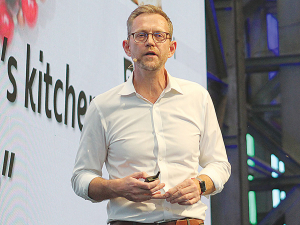Many very large food companies, particularly in the US, are struggling to adjust to the changing tastes of consumers, says Nick Fereday, RaboResearch senior analyst consumer foods.
“There’s been a huge turnover of chief executives; a very dangerous job to be in right now is to run a big food company in the US. You are likely to be scalped, to have Wall St coming after you for not delivering in the quarter,” he told the Rabobank Farm2Fork conference in Sydney last month.
He cited Kraft Heinz as a case and gave some examples of that company’s latest ‘new’ products, which showed “little innovation and were not meeting consumer changes”.
Fereday says it is not just Kraft Heinz; large food companies spend very little on social research -- just 1%.
“They are much more interested in spending money on persuading you to buy their product than come up with innovative product and talk to the consumer.”
He says large companies that have succeeded for a long time, e.g. Kraft with brands 100 years old and Heinz now celebrating 150 years, have survived by being able to adapt to trends.
“Increasingly in the last five-six years they have become very ‘unstuck’ from what’s going on. That has left an opportunity for small companies who see opportunities and move,” Fereday said.
“The larger companies are struggling with a mind-set where they have been making, for instance, cornflakes forever so the solution is more cornflakes or better cornflakes and they can’t think beyond that and come unstuck.
“This is afflicting more the American companies than the European companies who have caught up and are beginning to change.”











